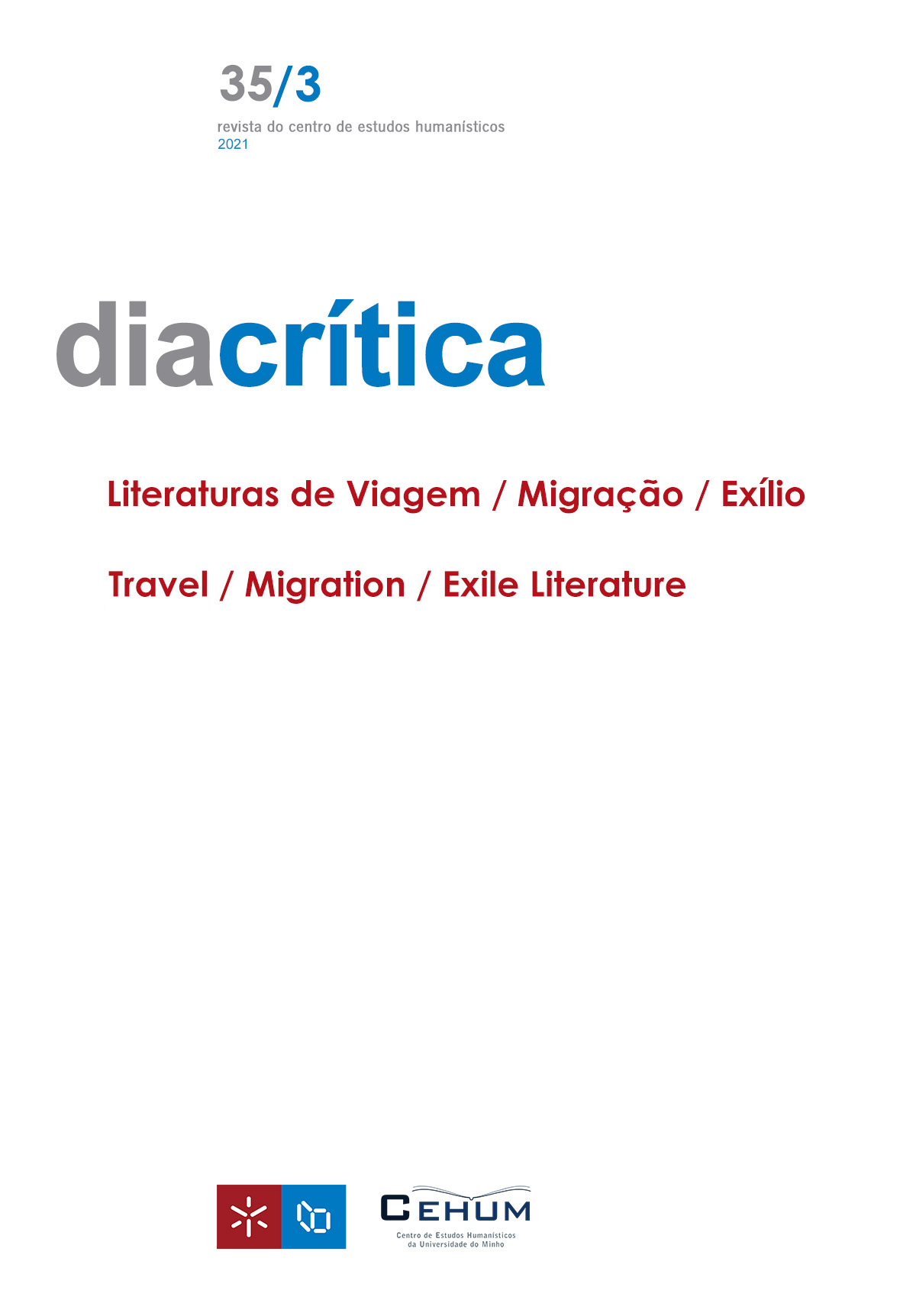Os Autrans outros. Os muitos autores de um autor
DOI:
https://doi.org/10.21814/diacritica.5185Palavras-chave:
Autran Dourado, Autor, Sujeito, Persona, Self-fashioningResumo
O século XX assistiu a um sistemático apagamento do sujeito no campo da teoria e da filosofia, que levaram a uma visão da literatura como linguagem dessubjetivada. Nesse contexto, nomes como Roland Barthes e Michel Foucault propuseram reflexões que viriam a abalar a noção de autor enquanto sujeito individual determinado social e historicamente e que seria dotado de capacidade criativa e de poder fundador. Contudo, observar os processos por meio dos quais os escritores automodelam sua própria imagem oferece a possibilidade de revisão desse desmanche do sujeito e do autor na literatura, permitindo visualizar a figura autoral como conjunto diverso de máscaras carregadas de significação social. É enquanto conjunto de máscaras em aliança e em tensão que Autran Dourado empreende a automodelagem de suas diversas personas. Dessa forma, analisarei a construção da figura autoral no livro O meu mestre imaginário, assinado por Erasmo Rangel, alter ego do autor, além de discutir as várias máscaras por que se apresenta em artigos publicados em jornais e revistas, bem como nos livros de ensaios teóricos do escritor.
Referências
Barthes, R (2004). O rumor da língua (M. Laranjeira, Trad.) (2.ªed., pp. 57–64). São Paulo: Martins Fontes.
Chartier, R. (2014). O que é um autor?: Revisão de uma genealogia. (L. Cursino & C.Eduardo Bezerra, Trads.). São Carlos: Edufscar.
Costa Lima, L. (2000). Mímesis: Desafio ao pensamento. Rio de Janeiro: Civilização Brasileira.
Costa Lima, L. (1991). Pensando nos trópicos (dispersa demanda II). Rio de Janeiro: Rocco.
Dourado, A. (1991, 20 novembro). A diáspora dos escritores mineiros. Isto é.
Dourado, A. (1990, 10 março). Aprendizado literário e sentimental. Jornal da Tarde.
Dourado, A. (1975, 08 novembro). A Profissionalização do escritor. Correio do povo.
Dourado, A. (1981, 03 maio). Diálogo com o alter-ego. O Estado de S. Paulo.
Dourado, A. (2009). Breve manual de estilo e romance. Belo Horizonte: UFMG.
Dourado, A. (2005).O meu mestre imaginário. Rio deJaneiro: Rocco.
Dourado, A. (1989). Um artista aprendiz. Rio de Janeiro: José Olympio.
Dourado, A. (2001). Um cavalheiro de antigamente. Rio deJaneiro: Rocco.
Dourado, A. (2000). Uma poética de romance: matéria de carpintaria. Rio de Janeiro: Rocco.
Foucault, M.(1999). As palavras e as coisas: uma arqueologia das ciências humanas (S.T.Muchail, Trad.) (8.ª ed.). São Paulo: Martins Fontes.
Foucault, M. (2006). Estética: literatura, pintura, música e cinema (I. Barbosa, Trad.) (2.ª ed.). Rio de Janeiro: Forense Universitária.
Foucault, M. (2001). Linguagem e literatura. (R. Machado & J-R. Weisshaupt, Trads.). In R. Machado, Foucault, a filosofia e a literatura (2.ªed., pp. 137–174). Rio de Janeiro: Jorge Zahar.
Goffman, E. (1956). The presentation of self in everyday life. Edimburgo: Universidade de Edimburgo.
Greene, T. (1968). The flexibility of the self in Renaissance literature. In P. Demetz, T. Greene & L. Nelson Jr. (Eds.), The disciplines of criticism: Essays in literary theory, interpretation, and history(pp. 241–264). New Heaven/Londres: Yale University Press.
Machado, R. (2001). Foucault, a filosofia e a literatura.(2.ªed.) Rio de Janeiro: Jorge Zahar.
Wellbery, D. (1996). Poetic vocation. In The specular moment: Goethe’s early lyric and the beginnings of Romanticism. (pp. 287–351). California: Standford University Press.
Downloads
Publicado
Como Citar
Edição
Secção
Licença
Direitos de Autor (c) 2023 Jonatas Guimarães

Este trabalho encontra-se publicado com a Creative Commons Atribuição-NãoComercial 4.0.










